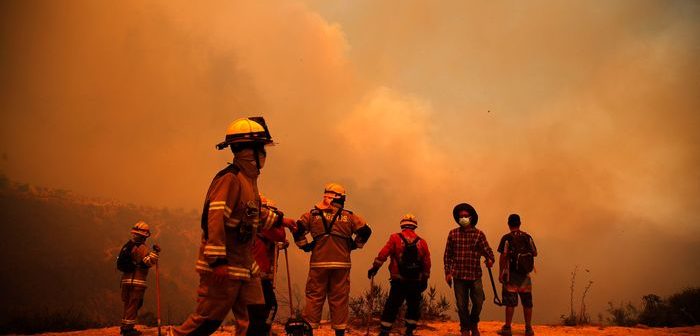In early 2024, Chile faced devastating wildfires across several regions, including Valparaíso, O’Higgins, Maule, Biobío, and Los Lagos. These fires led to the deaths of 122 individuals, affected thousands of homes, and prompted extensive evacuations and red alerts in multiple areas. The rapid spread and high intensity of these fires, driven by factors such as extreme weather conditions, underline the urgent need for preparedness and adaptive strategies in fire-prone areas worldwide, including India.
Rapid Response and Evacuation
Chile’s approach to handling the wildfires involved immediate red alerts and evacuations in affected regions. In places like the Valparaíso Region, authorities quickly mobilized to evacuate thousands of people as the fires advanced. This proactive stance on evacuation highlights the importance of having an effective emergency response system in place, which can significantly reduce the impact of such disasters.
Resource Mobilization
The Chilean government’s mobilization of resources, including firefighters, helicopters, and trucks, despite the challenges posed by the terrain and the intensity of the fires, underscores the need for India to have a robust mechanism for rapid deployment of resources. Ensuring the availability of adequate firefighting equipment and trained personnel, ready to be deployed at a moment’s notice, is crucial.
Public Awareness and Urban Planning
One of the critical lessons from the Chilean wildfires is the significance of public awareness and preparedness. In areas prone to wildfires, educating the public on fire safety, prevention measures, and evacuation plans is essential. Furthermore, urban planning that considers fire risks, including the creation of firebreaks and the management of vegetation around urban areas, can mitigate the spread of wildfires.
Investment in Technology and Infrastructure
Investing in technology and infrastructure to predict, detect, and combat wildfires is another vital lesson. Chile’s experience highlights the need for India to invest in satellite monitoring, early warning systems, and aerial firefighting capabilities. Enhancing the technological capabilities to detect fires early and respond swiftly can save lives and reduce property damage.
Climate Change Adaptation
Finally, the Chilean wildfires serve as a stark reminder of the exacerbating effect of climate change on natural disasters. Adapting to climate change through sustainable land management, reforestation, and the reduction of carbon emissions is imperative. India, with its diverse geography and climate, must prioritize climate change adaptation strategies to mitigate the risk of wildfires and other natural disasters.
Chile’s battle against its worst wildfires in decades offers crucial lessons for India, particularly in enhancing disaster preparedness, response mechanisms, and climate change adaptation efforts. By learning from Chile’s experience, India can strengthen its resilience against wildfires, safeguarding both its people and ecosystems against the unpredictable threats posed by a changing climate.






